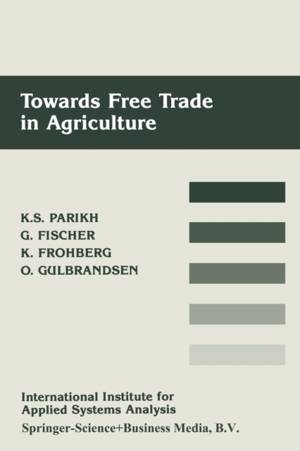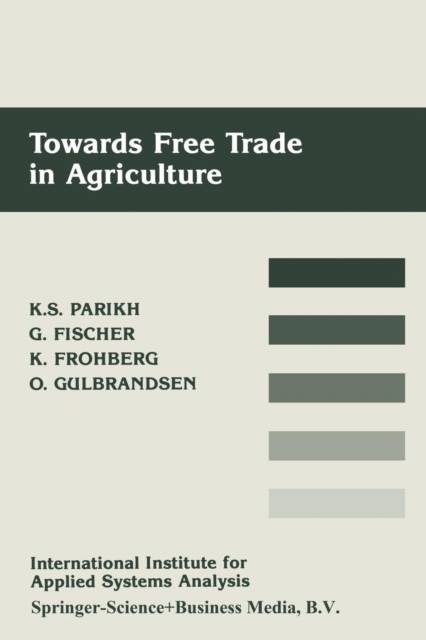
- Afhalen na 1 uur in een winkel met voorraad
- Gratis thuislevering in België vanaf € 30
- Ruim aanbod met 7 miljoen producten
- Afhalen na 1 uur in een winkel met voorraad
- Gratis thuislevering in België vanaf € 30
- Ruim aanbod met 7 miljoen producten
Zoeken
Towards Free Trade in Agriculture
Kirit S Parikh, Günther Fischer, Klaus Frohberg, Odd Gulbrandsen
Paperback | Engels
€ 100,98
+ 201 punten
Omschrijving
Agriculture seems to be a difficult sector to manage for most governments. Developing countries face tough dilemmas in deciding on appropriate price poli- eies to stimulate food production and maintain stable, preferably low, prices for poor consumers. Governments in developed countries face similar difficult deci- sions. They are called upon to give income guarantees to farmers whose incomes are unstable and relatively low when compared to those in the nonagricultural sector. These guarantees often lead to ever-increasing budgetary outlays and unwanted agricultural surpluses. High prices make new investments and the application of new technologies more attractive than world prices warrant, and a process is set in motion where technological innovation attains amomenturn of its own, in turn requiring price policies that maintain their rates of return. Surpluses are disposed of with subsidies in domestic markets or in the international market. Price competition reduces the market share of other exporters, who may be efficient producers, unless they are willing to engage in subsidy competition. This lowers export earnings and farm incomes or depletes the public resources of developing countries that export competing products. Retaliatory measures have led to frictions and further distortions of world prices. Every so orten the major agricultural exporters - the USA, the EC, Aus- tralia, or Canada - accuse one another of unfair intervention. Though they have agreed to discuss agricultural trade liberalization under GATT negotiations, if anything, the expenditure on farm support has continued to increase in both the EC and the USA.
Specificaties
Betrokkenen
- Auteur(s):
- Uitgeverij:
Inhoud
- Aantal bladzijden:
- 357
- Taal:
- Engels
Eigenschappen
- Productcode (EAN):
- 9789401735605
- Verschijningsdatum:
- 13/11/2013
- Uitvoering:
- Paperback
- Formaat:
- Trade paperback (VS)
- Afmetingen:
- 156 mm x 234 mm
- Gewicht:
- 521 g

Alleen bij Standaard Boekhandel
+ 201 punten op je klantenkaart van Standaard Boekhandel
Beoordelingen
We publiceren alleen reviews die voldoen aan de voorwaarden voor reviews. Bekijk onze voorwaarden voor reviews.








